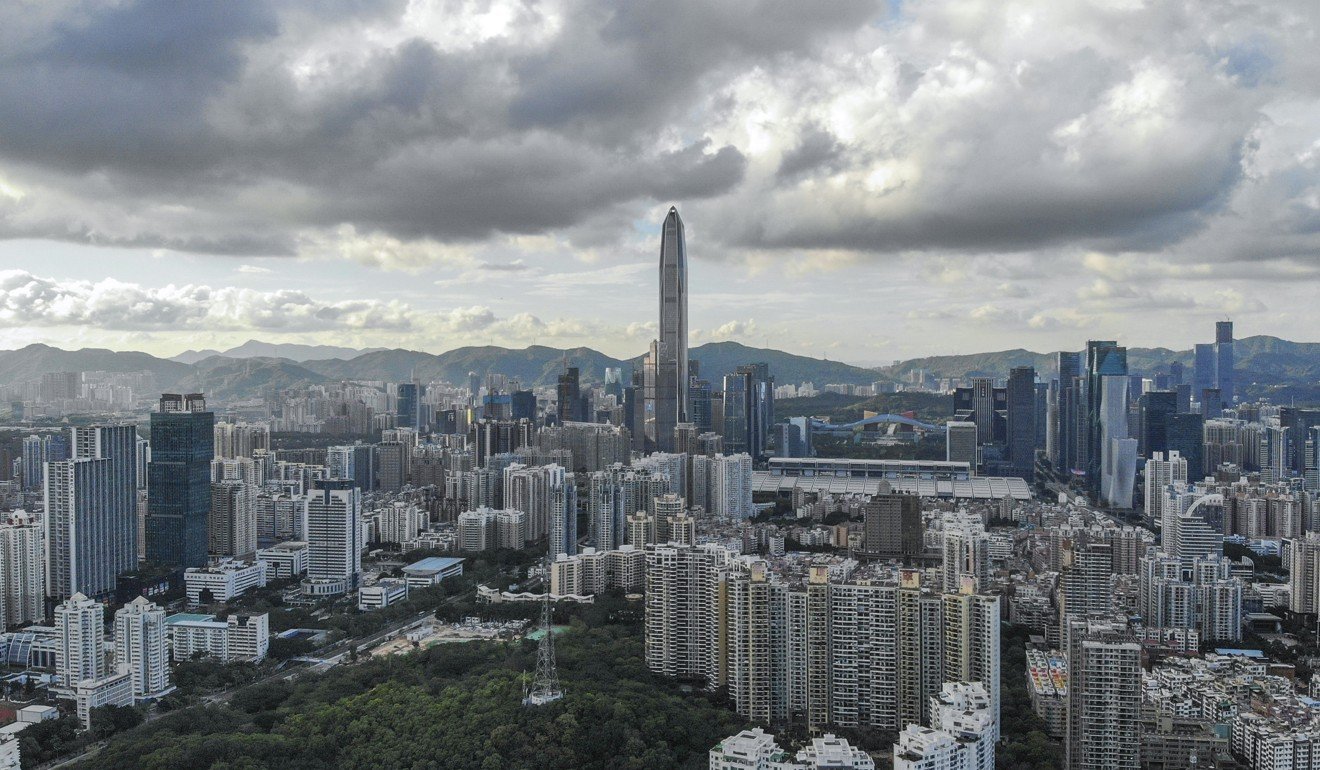
Hong Kong leader Carrie Lam unveils Beijing-backed boost for city’s innovation and technology sector
After unprecedented meeting attended by Vice-Premier Han Zheng, leader announces setting-up of central government-funded laboratories in city’s science park
Hong Kong’s innovation and technology sector is due for a significant boost from a slew of initiatives announced in Beijing on Wednesday, including the setting-up of two new state-backed laboratories in the city’s science park and a cross-border cooperation arrangement to be signed later.
He spoke of “allowing Hong Kong and Macau people to shoulder the national responsibility of achieving the great revival of the Chinese nation … and sharing the motherland’s great glory of being prosperous”.
Han, ranked No 7 in the Communist Party hierarchy, is Beijing’s point man on the project as well as the top state leader in charge of affairs concerning the two former European colonies – officially confirmed on Wednesday for the first time by Zhang Xiaoming, director of the State Council’s Hong Kong and Macau Affairs Office.
The meeting was also seen as an indication that the annual summer gathering of China’s top leaders at the northern seaside resort of Beidaihe had come to a close.
And it marked the first time that the chief executives of Hong Kong and Macau were included as members of a working group chaired by a top Beijing leader directly reporting to China’s cabinet.
Lam revealed after the meeting that the working group had made significant decisions on supporting Hong Kong’s IT sector, as well as social policies for the city’s residents living, working or travelling in the nine mainland cities included in the bay area project.

“The Chinese Academy of Sciences will establish an affiliated organisation in Hong Kong and arrange for two of its institutes to set up [branches] at the science park,” Lam said, referring to the Guangzhou Institute of Biomedicine and Health, and the Institute of Automation in Beijing.
Lam said the Ministry of Science and Technology would sign a new agreement with Hong Kong’s Innovation and Technology Bureau on fostering cooperation.
“Beijing also agreed on the setting-up of the Greater Bay Area academicians’ alliance ... so that there can be more exchanges and cooperation among them,” she said.
The alliance would be made of academics from Macau and Guangdong, as well as some 40 Hong Kong members of either the Chinese Academy of Sciences or the Chinese Academy of Engineering – two of the country’s top science and technology research institutes.
The Innovation and Technology Bureau said the cooperation agreement would include details of technological collaboration. “It will provide strong support to building Hong Kong into an international innovation and technology hub,” a spokeswoman said.
Professor Lo Chung-mau, chief executive of the University of Hong Kong-Shenzhen Hospital, said any collaboration was good for scientific research.
“It is not only about the resources they could bring in, but also the talent ... and the pool of medical cases,” Lo said.
However, Henry Wong Nai-ching, a Hong Kong member of the Chinese Academy of Sciences, said he had not heard from the government about any substantial detail of the Greater Bay Area academicians’ alliance.
“Whether the new alliance will bring us nothing more than a new brand, or some more substantial influence, is yet to be seen,” he said.
Regarding the social policies, Lam said the working group had agreed on studying ways to reduce Hongkongers’ phone roaming charges, as well as to make it easier for them to open bank accounts and use their e-wallets in the Guangdong cities.
Lam also confirmed a Post report that service charges would be reduced for Hong Kong passengers buying tickets to mainland destinations beyond the direct stops the MTR Corporation’s new high-speed rail line will connect to.


